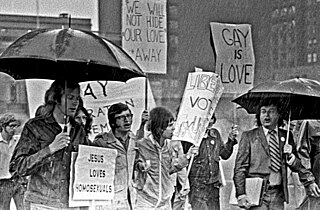
Social science is one of the branches of science, devoted to the study of societies and the relationships among individuals within those societies. The term was formerly used to refer to the field of sociology, the original "science of society", established in the 19th century. In addition to sociology, it now encompasses a wide array of academic disciplines, including anthropology, archaeology, economics, human geography, linguistics, management science, communication science and political science.

International Relations (IR) are the interactions among sovereign states. The scientific study of those interactions is called international studies, international politics, or international affairs. In a broader sense, it concerns all activities among states—such as war, diplomacy, trade, and foreign policy—as well as relations with and among other international actors, such as intergovernmental organizations (IGOs), international nongovernmental organizations (INGOs), international legal bodies, and multinational corporations (MNCs). There are several schools of thought within IR, of which the most prominent are realism, liberalism, and constructivism.

An academic discipline or field of study is a branch of knowledge, taught and researched as part of higher education. A scholar's discipline is commonly defined by the university faculties and learned societies to which they belong and the academic journals in which they publish research.
Democratic capitalism, also referred to as market democracy, is a political and economic system. It integrates resource allocation by marginal productivity, with policies of resource allocation by social entitlement. The policies which characterise the system are enacted by democratic governments.
Transnationalism is a research field and social phenomenon grown out of the heightened interconnectivity between people and the receding economic and social significance of boundaries among nation states.
The New International Economic Order (NIEO) is a set of proposals advocated by developing countries to end economic colonialism and dependency through a new interdependent economy. The main NIEO document recognized that the current international economic order "was established at a time when most of the developing countries did not even exist as independent states and which perpetuates inequality." In the spirit of "trade not aid," the NIEO called for changes in trade, industrialization, agricultural production, finance, and transfer of technology. The United Nations General Assembly adopted the Declaration for the Establishment of a New International Economic Order and its accompanying program of action on 1 May 1974.
Transnational feminism refers to both a contemporary feminist paradigm and the corresponding activist movement. Both the theories and activist practices are concerned with how globalization and capitalism affect people across nations, races, genders, classes, and sexualities. This movement asks to critique the ideologies of traditional white, classist, western models of feminist practices from an intersectional approach and how these connect with labor, theoretical applications, and analytical practice on a geopolitical scale.

Archival science, or archival studies, is the study and theory of building and curating archives, which are collections of documents, recordings and data storage devices.
Language documentation is a subfield of linguistics which aims to describe the grammar and use of human languages. It aims to provide a comprehensive record of the linguistic practices characteristic of a given speech community. Language documentation seeks to create as thorough a record as possible of the speech community for both posterity and language revitalization. This record can be public or private depending on the needs of the community and the purpose of the documentation. In practice, language documentation can range from solo linguistic anthropological fieldwork to the creation of vast online archives that contain dozens of different languages, such as FirstVoices or OLAC.

Mills v. Board of Education of District of Columbia, 348 F. Supp. 866, was a lawsuit filed against the District of Columbia in the United States District Court for the District of Columbia. The court ruled that students with disabilities must be given a public education even if the students are unable to pay for the cost of the education. The case established that "all children are entitled to free public education and training appropriate to their learning capacities". Peter D. Roos, a former staff attorney at Harvard University's Center for Law and Education, described Mills as a "leading case" in a series of lawsuits that attempted to provide access to education for children with disabilities. Mills v. Board was a certified class action lawsuit under Rule 23(b)(1) and (2). These subsections identify a violation of the right to equal treatment under law in a way that would obstruct the ability to protect one's interest as an individual member of a common class. Additionally, subsection b(2) describes a case with refusal of the opposing party to rectify the transgression to a degree that merits corrective adjudication. This was a broad interpretation of the 14th Amendment due process clause of law and was used to make changes to local school district policy.

Indigenous decolonization describes ongoing theoretical and political processes whose goal is to contest and reframe narratives about indigenous community histories and the effects of colonial expansion, cultural assimilation, exploitative Western research, and often though not inherent, genocide. Indigenous people engaged in decolonization work adopt a critical stance towards western-centric research practices and discourse and seek to reposition knowledge within Indigenous cultural practices.
Hawaiian studies is an academic discipline dedicated to the study of Hawaiians. It evolved in the second half of the 20th century partly in response to charges that traditional disciplines such as anthropology, history, English language, ethnology, Asian Studies, and orientalism were imbued with an inherently eurocentric perspective. Ethnic Studies has mostly been a study of minority settler cultures although Hawaiian Studies shares with Ethnic Studies attempts to remedy problems with other academic disciplines by trying to study Hawaiian culture and people on their own terms, in their own language, acknowledging their own values.

Open educational practices (OEP) are part of the broader open education landscape, including the openness movement in general. It is a term with multiple layers and dimensions and is often used interchangeably with open pedagogy or open practices. OEP represent teaching and learning techniques that draw upon open and participatory technologies and high-quality open educational resources (OER) in order to facilitate collaborative and flexible learning. Because OEP emerged from the study of OER, there is a strong connection between the two concepts. OEP, for example, often, but not always, involve the application of OER to the teaching and learning process. Open educational practices aim to take the focus beyond building further access to OER and consider how in practice, such resources support education and promote quality and innovation in teaching and learning. The focus in OEP is on reproduction/understanding, connecting information, application, competence, and responsibility rather than the availability of good resources. OEP is a broad concept which can be characterised by a range of collaborative pedagogical practices that include the use, reuse, and creation of OER and that often employ social and participatory technologies for interaction, peer-learning, knowledge creation and sharing, empowerment of learners, and open sharing of teaching practices.
Green criminology is a branch of criminology that involves the study of harms and crimes against the environment broadly conceived, including the study of environmental law and policy, the study of corporate crimes against the environment, and environmental justice from a criminological perspective.

Chandra Talpade Mohanty is a Distinguished Professor of Women's and Gender Studies, Sociology, and the Cultural Foundations of Education and Dean's Professor of the Humanities at Syracuse University. Mohanty, a postcolonial and transnational feminist theorist, has argued for the inclusion of a transnational approach in exploring women’s experiences across the world. She is author of Feminism Without Borders: Decolonizing Theory, Practicing Solidarity, and co-editor of Third World Women and the Politics of Feminism, Feminist Genealogies, Colonial Legacies, Democratic Futures, Feminism and War: Confronting U.S. Imperialism,, and The Sage Handbook on Identities.

Decolonization of knowledge is a concept advanced in decolonial scholarship that critiques the perceived hegemony of Western knowledge systems. It seeks to construct and legitimize other knowledge systems by exploring alternative epistemologies, ontologies and methodologies. It is also an intellectual project that aims to "disinfect" academic activities that are believed to have little connection with the objective pursuit of knowledge and truth. The presumption is that if curricula, theories, and knowledge are colonized, it means they have been partly influenced by political, economic, social and cultural considerations. The decolonial knowledge perspective covers a wide variety of subjects including philosophy, science, history of science, and other fundamental categories in social science.

The We Demand Rally was the first large scale gay rights demonstration in Canada. The rally occurred on August 28, 1971 in Ottawa, and was organized by the gay rights activist groups Toronto Gay Action (TGA) and Community Homophile Association of Toronto (CHAT). There was a parallel rally in Vancouver that was organized in solidarity with the rally by the Vancouver group Gay Alliance Toward Equality (GATE). The rally plays an important part in the history of queer equity-seeking and gay rights in Canada, as well as the history of feminism in Canada, and has had a lasting legacy in Canadian gay rights activism.

Rebecca Sockbeson is a Wabanaki scholar and activist in the field of Indigenous Peoples' education.

Tamar Evangelestia-Dougherty is an American librarian and administrator. An archives and special collections expert, Evangelestia-Dougherty was the executive director of the Chicago-based Black Metropolis Research Consortium from 2011 to 2013 and the director of collections and services at the Schomburg Center for Research in Black Culture from 2013 to 2015. She became the first director of the combined Smithsonian Libraries and Archives, the world's largest museum library system, December 6, 2021.











